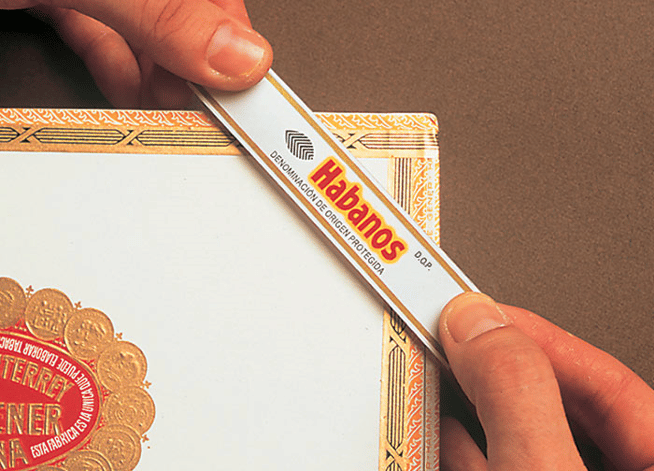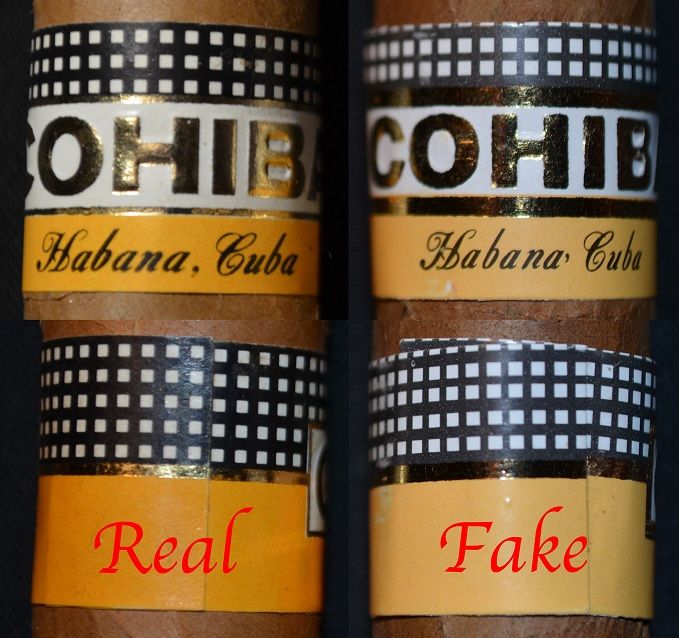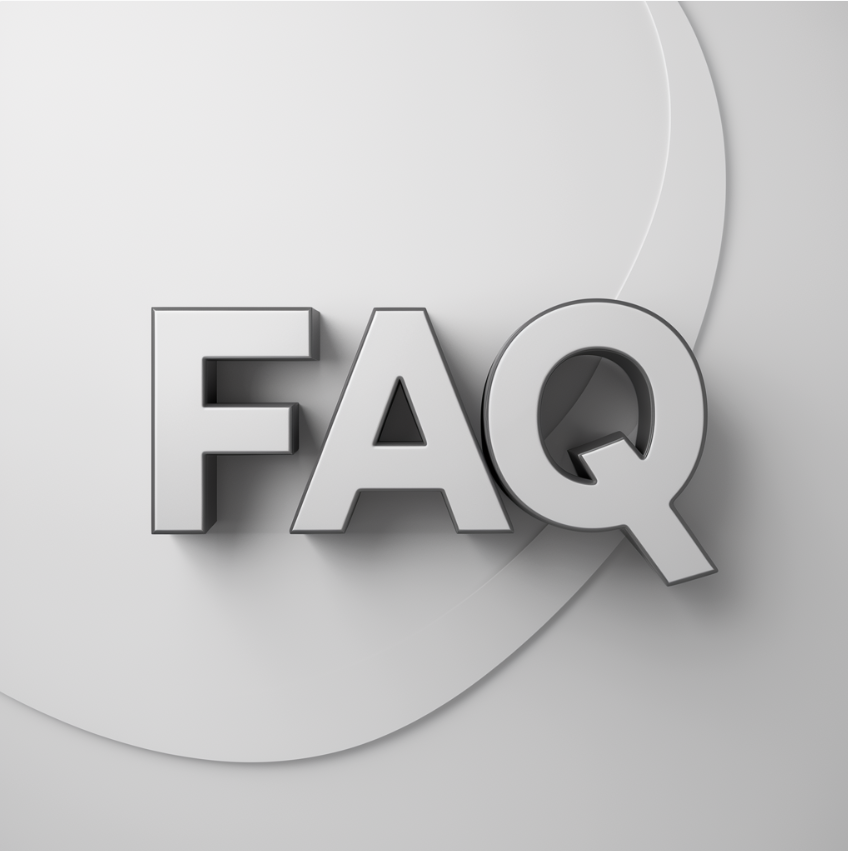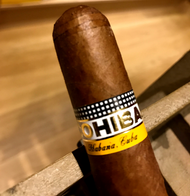How To Identify Fake Cuban Cigars
Posted by Cigar Tom on 3rd Jul 2024
Are you an aficionado of fine cigars, particularly interested in savoring the rich flavors of genuine Cuban cigars?
This discourse will delve into the significance of discerning counterfeit Cuban cigars, outlining the potential risks and repercussions associated with the acquisition of imitation products.
The examination will elucidate the physical attributes and packaging indicators that facilitate the identification of counterfeit items, along with guidance on sourcing authentic Cuban cigars from credible suppliers.
Anticipate the elucidation of warning signs to be vigilant for and procedures to undertake should suspicion arise regarding the authenticity of a cigar.
What are Fake Cuban Cigars?
Counterfeit Cuban cigars are imitation products that aim to replicate the flavor, appearance, and packaging of genuine Cuban cigars but often fail to meet the standards of quality and craftsmanship.
Counterfeiters typically concentrate on duplicating the intricate features of authentic Cuban cigars to mislead unwary purchasers. A common identifying trait of fake Cuban cigars is their inconsistent visual presentation, characterized by irregular color schemes and inadequately applied wrappers.
Regarding branding, counterfeiters frequently encounter difficulties in accurately reproducing the intricate designs and embossing present on authentic bands, resulting in noticeable disparities upon detailed examination.
The packaging of counterfeit Cuban cigars may lack the premium quality associated with genuine packaging, exhibiting inferior materials and printing standards. These subtle deviations serve as indicators for enthusiasts who prioritize authenticity.
Why it Matters to Identify Fakes
It is imperative to discern counterfeit Cuban cigars, not only to uphold the quality of the smoking experience but also to preserve market integrity and guarantee that consumers are provided with products of authentic quality and provenance.
Potential Risks and Consequences
The consumption of counterfeit Cuban cigars poses various risks and potential consequences, spanning from substandard quality to an unsatisfactory smoking experience and potential health hazards attributable to the undisclosed ingredients employed by counterfeiters.
Counterfeit cigars are typically manufactured using subpar materials and production techniques, resulting in issues like inconsistent burns, imbalanced flavors, and a harsh smoking experience. In some instances, counterfeit products may contain hazardous substances like pesticides or toxic compounds, thereby posing a significant health hazard to consumers.
There have been documented cases where individuals unknowingly consumed counterfeit cigars, leading to adverse reactions such as nausea, headaches, and respiratory complications. These occurrences underscore the perilous ramifications associated with the consumption of counterfeit tobacco products.
Signs of a Fake Cuban Cigar

Identifying a counterfeit Cuban cigar can pose a challenge, yet several unmistakable indicators, including inconsistencies in appearance, incorrect markings, and deviations in packaging, can assist in distinguishing a fraudulent product.
Physical Characteristics to Look For
When analyzing the physical attributes of Cuban cigars, meticulous attention should be paid to aspects such as appearance, banding, color, and texture, as these elements can offer indications of a cigar's authenticity.
True Cuban cigars are renowned for their consistent rich and deep coloration across the entirety of the wrapper. The banding on an authentic Cuban cigar is applied with precision, displaying intricate details and utilizing top-quality materials.
Upon running one's fingers along the cigar, it should exhibit a uniform and firm texture, devoid of any uneven or soft spots. Conversely, counterfeit cigars may exhibit inconsistencies in color, haphazard banding, and a texture that feels irregular or substandard.
These visual and tactile indicators play a critical role in distinguishing between genuine Cuban cigars and counterfeit replicas.
Packaging and Labeling Clues

The packaging and labeling of Cuban cigars play a critical role as indicators of authenticity. Genuine Cuban cigars are characterized by specific labels, stamps, and high-quality boxes that counterfeiters often struggle to replicate accurately.
These distinct markings serve as security measures to safeguard consumers against purchasing counterfeit Cuban cigars.
Authentic products frequently feature a holographic seal on the box, a unique serial number for traceability, and intricate embossing or engraving on the labels.
The texture and weight of the box are significant considerations, as legitimate Cuban cigar boxes are typically crafted from high-quality wood with smooth finishes and meticulous construction.
By attentively observing these details, cigar enthusiasts can ensure that they are acquiring a genuine product and an exceptional smoking experience.
Where to Buy Authentic Cuban Cigars
The acquisition of genuine Cuban cigars necessitates the meticulous identification of reliable retailers and reputable sources to guarantee the quality and authenticity of the merchandise, given the proliferation of counterfeit alternatives in the market.
Reputable Sources and Sellers
To identify reputable sources and vendors of Cuban cigars, it is advisable to seek out retailers with a strong track record, verifiable customer feedback, and a proven history of supplying authentic merchandise.
Certifications play a pivotal role in substantiating the authenticity of Cuban cigars on the market. It is recommended to engage with vendors who possess official certifications from recognized entities such as Habanos S.A., the exclusive entity authorized to market Cuban cigars globally.
Established retailers like La Casa del Habano, or respected platforms such as CigarOne and Montefortuna Cigars, are renowned for their offering of genuine Cuban cigars.
Additionally, customer testimonials serve as a crucial determinant. It is prudent to seek out favorable reviews that underscore the quality and genuineness of the merchandise being retailed.
Tips for Avoiding Fake Cuban Cigars

Preventing the purchase of counterfeit Cuban cigars requires a blend of expertise, vigilance, and practical advice to enable consumers to make informed choices and avoid fraudulent products.
Red Flags and Warning Signs
There exist numerous indicators and cautionary signals to be vigilant of when purchasing Cuban cigars, such as remarkably low prices, questionable packaging, and inconsistencies in branding that may suggest the presence of counterfeit items.
A prevalent oversight that purchasers frequently make is the failure to verify the presence of proper licensing or certification on the product.
Genuine Cuban cigars are accompanied by distinct seals and serial numbers that can be corroborated by the manufacturer. Therefore, the absence of these identifiers or the inability of a vendor to furnish evidence of authenticity is a significant warning sign.
It is imperative for buyers to exercise caution concerning ambiguous or generic product descriptions, as counterfeiters often employ nondescript terminology to circumvent legal repercussions while peddling fraudulent merchandise.
What to do if You Suspect a Cigar is Fake
Should there be suspicions regarding the authenticity of a cigar, it is recommended to undertake various steps to confirm its legitimacy. These steps may include:
- Requesting verification documentation from the seller
- Seeking guidance from industry experts
- Utilizing existing resources for thorough authentication
Steps to Take and Resources to Use
When verifying a suspected counterfeit cigar, it is recommended to initiate the process by seeking advice from qualified professionals, participating in online discussions, and utilizing resources tailored for the verification and education on cigars.
Expert consultations play a pivotal role in the authentication process, as professionals possess the knowledge to identify specific attributes that signify the authenticity of a cigar.
Online forums serve as platforms that offer valuable insights from seasoned connoisseurs who have encountered similar scenarios.
Furthermore, online verification tools, such as databases and authentication services, offer supplementary layers of assurance in confirming the legitimacy of a cigar.
Conducting comprehensive research is imperative, encompassing an understanding of the brand, distinguishing markings, and packaging details.
Seeking the opinions of experts can assist in validating any uncertainties and fostering confidence in the authenticity of the purchase.
Frequently Asked Questions

How can I tell if a Cuban cigar is fake?
There are a few key indicators to look out for when identifying fake Cuban cigars. These include the packaging, the cigar band, and the overall construction and appearance of the cigar. It is important to educate yourself on what a real Cuban cigar looks and feels like before making a purchase.
What should I look for in the packaging of a Cuban cigar?
The packaging of a Cuban cigar is usually of high quality and consistency. Look for high-quality materials, such as cedar wood boxes, and consistent branding and labeling. Additionally, check for any spelling errors or discrepancies in labeling, as these are common signs of fake cigars.
Are the cigar bands a reliable way to identify fake Cuban cigars?
Cigar bands can be a helpful tool in identifying fake Cuban cigars, but they should not be the only factor in determining authenticity. Some counterfeiters have become skilled at replicating cigar bands, so it is important to also consider other factors, such as the overall appearance and construction of the cigar.
What are some visual cues to look for when identifying fake Cuban cigars?
One of the most obvious visual cues is the construction of the cigar. Authentic Cuban cigars are known for their high-quality construction, with tightly rolled filler leaves and smooth, seamless wrappers. Fake cigars may have loose or unevenly rolled leaves, and the wrapper may appear rough or bumpy.
Is the price of a cigar a good indicator of its authenticity?
Not necessarily. While authentic Cuban cigars are typically more expensive than other cigars, some counterfeiters may try to sell fake cigars at a high price to deceive buyers. It is important to do your research and compare prices from reputable sources before making a purchase.
What should I do if I suspect I have purchased a fake Cuban cigar?
If you suspect that you have purchased a fake Cuban cigar, it is important to reach out to the seller or retailer immediately. They may be able to offer a refund or exchange, and can also help to prevent others from falling victim to the same scam. Additionally, you can report the incident to the appropriate authorities to help combat counterfeit cigars in the market.




